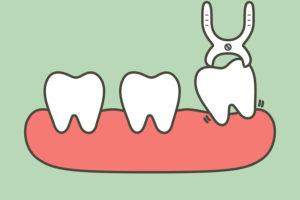Do’s And Don’ts After A Tooth Extraction


Additionally, it’s important for patients to monitor the extraction site for any signs of complications as they heal after the procedure. As soon as you see something that concerns you, reach out to our office for further guidance and evaluation to determine how to proceed.
What To Do After Your Tooth Extraction
In all cases, patients should closely follow the post-operative instructions provided to them by the oral surgeon to determine what they should or shouldn’t do after a tooth extraction. These are just a few of the positive steps that you can take to be proactive about supporting the healing process.
- Do keep the extraction site clean to prevent infection.
- Do eat a soft diet as directed.
- Do use ice packs for brief periods of time to manage swelling in the first 24 hours.
- Do take all medications, including antibiotics and/or OTC or prescription painkillers, as directed. Discontinuing your antibiotic prematurely can increase your risk of infection.
What Not To Do After Your Tooth Extraction
- Don’t use drinking straws. The sucking motion can either dislodge the blood clots that protect the sensitive tooth socket or prevent those clots from forming, leading to a painful condition known as dry sockets.
- Don’t smoke. Smoking is inflammatory and can interfere with healing.
- Don’t eat hard or crunchy foods. These foods can impact the sensitive extraction site and may even dislodge any stitches that were put in place there.
Signs Of Post-Extraction Complications
Beyond following the instructions provided by the oral surgeon, patients also should monitor for the signs of complications, such as infection. We’ll give you a complete listing of these symptoms before you leave our office, but a few of them are:
- Pus
- Severe or persistent pain
- Bad breath
- Persistent bleeding
Patients who experience any of these issues should contact our office immediately for guidance and/or evaluation. If it is after our regular business hours, you can reach our staff via our answering service.
Doing all the right things and avoiding the wrong ones makes it much more likely that your recovery after tooth extraction will be an uneventful one. Make sure you have a plan in place, and don’t hesitate to ask us for any additional information you may need for post-extraction self-care.